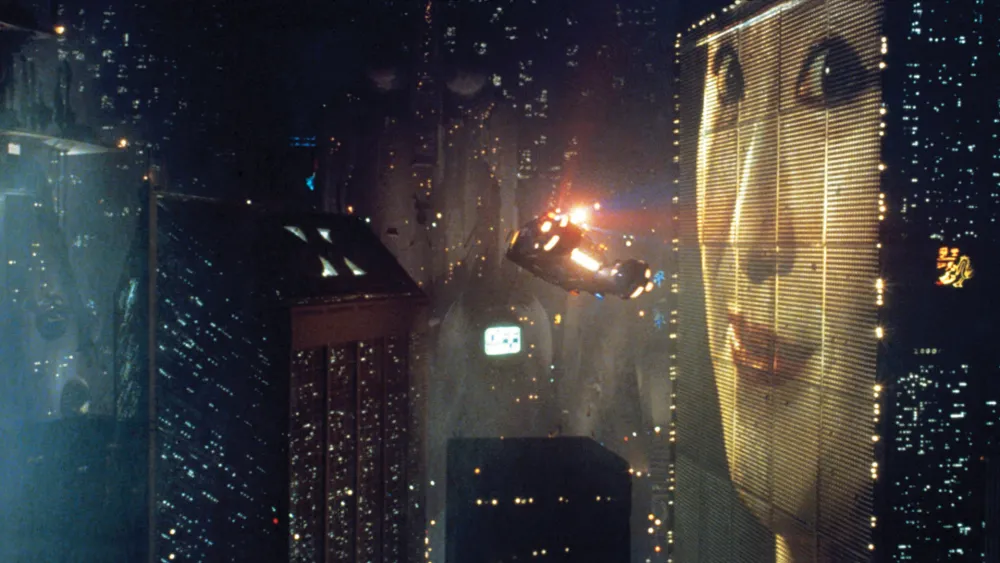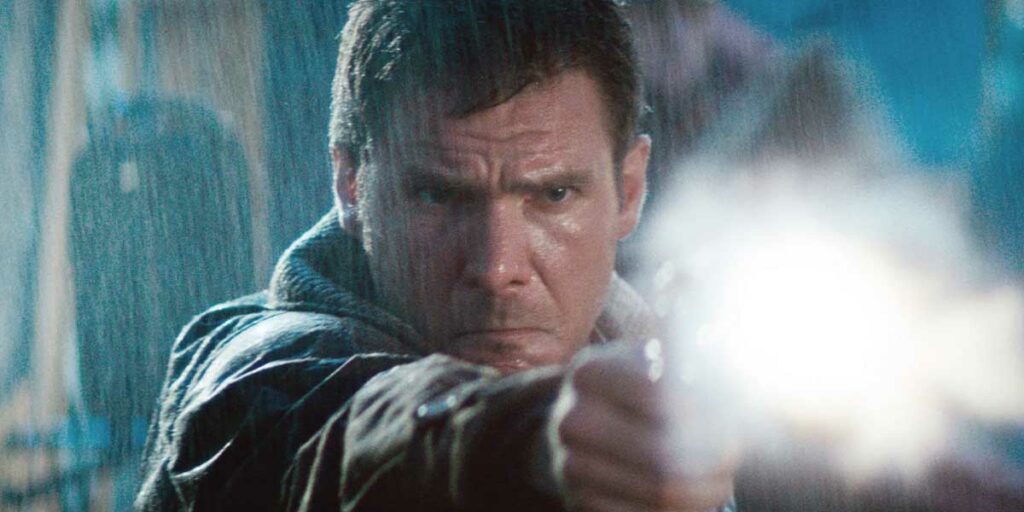Forty years after it was made, Ridley Scott’s Blade Runner (1982) is a timeless masterpiece and a very relevant rewatch in 2023.
Ridley Scott is known for his many films across different genres but for me, he will always be associated with Blade Runner. Not only is Blade Runner the first film I ever saw of the iconic director, but it is also one of his very best films, if not the best. The movie was released in 1982 and yet, despite being more than 40 years old, it still remains a very relevant watch in 2023 and, most likely, in the years to come too. While this would be an impressive achievement in any case, it is more significant given that this is a science fiction film, a genre where ideas about the future can soon feel obsolete when this predicted future approaches.
Loosely based on Philip K. Dick’s 1968 novel “Do Android Dream of Electric Sheep?,” Blade Runner is a science-fiction film set in 2019, in a dystopian version of Los Angeles. In this highly technological and post-apocalyptic world, Rick Deckard (Harrison Ford) resumes his job as a blade runner, a special police force in charge of taking down the replicants, androids created by the Tyrell Corporation, headed by its founder Eldon Tyrell (Joe Turkel). During the film, Deckard hunts down a group of replicants headed by Roy Batty (Rutger Hauer) as they escape to Earth to rebel against a system that sees them working as slaves in the off-world colonies for the four-year lifespan they are built for.
One of Blade Runner’s strengths is its visuals and cinematography, bringing to life a haunting portrayal of Los Angeles post ecocide right before our eyes: the city and the atmosphere that surrounds the entire film is immediately established in the first establishing shots we see of Los Angeles with overpopulated skyscrapers one next to the other, huge ads, and constant smoke and pollution. Its aesthetic, dominated by chiaroscuro, along with a morally grey protagonist accompanied by the femme fatale character, is part of what makes this movie a neo-noir film, as it heavily borrows the themes and visual styles of the noir genre but adapts them to a modern setting and sensibility.
The film is best known for its portrayal of artificial intelligence, forcing its audience to re-evaluate what it really means to be human. In a world like that portrayed in Blade Runner where androids look and act very much like humans do, what sets them apart from humans? As we get to know these characters, they seem more human and empathetic than the protagonist or their creator themselves. As suggested in the film, the replicants “think, therefore [they] are”. Their consciousness and feelings cannot be denied and yet the replicants are condemned to a short lifetime of servitude: not only their will lives will be, but they also have to serve as slaves with no rights or protection.

Blade Runner would not be the iconic masterpiece that it is without its most memorable scene: the tears in the rain monologue, delivered by Roy Batty in his final scene where he reflects on his mortality and experiences. This scene highlights the character’s humanity once again while also referencing his artificial characteristics: while the nature of the technology may cause Roy’s premature death, what remains of him are his feelings and memories and what is more human than that? Much like the rest of the film, this scene is so significant thanks to the stellar acting by the late Rutger Hauer, who also modified the monologue during filming and made it the heartbreaking soliloquy we know today, and the musical score by Vangelis which elevates this scene even more.
Thanks to its powerful visuals and brilliant acting, it is a movie that does not get old: no matter how many times you revisit it, there will always be some new elements or symbolism that stand out with each rewatch. Blade Runner is a science fiction film that manages to withstand the test of time as the anxieties and commentary it raises around artificial intelligence and its uses are still as relevant – if not even more – now than when the film was released. Los Angeles in 2019 may not have looked like it does in Scott’s film yet, but it seems like it is not far off becoming that.
Blade Runner is now available to watch on digital and on demand.

